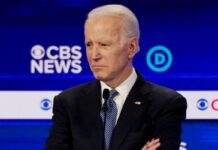First Liberty Institute, Kirkland & Ellis LLP, and Kent & McFarland filed their opening brief in United States v. Corrine Brown, on appeal to the U.S. Court of Appeals for the Eleventh Circuit en banc, arguing that a juror was impermissibly dismissed during deliberation for praying for guidance and believing his prayers were answered.
You can read the brief here.
“How is it possible that we demand a juror take an oath invoking God’s aid in rendering a verdict but then dismiss that same juror for taking that oath seriously?” said Hiram Sasser, Executive General Counsel for First Liberty. “Dismissing a deliberating juror for believing prayer is effective denies the noble and civic duty to serve as a juror to hundreds of millions of Americans who seek divine guidance through prayer.”
Paul Clement, former U.S. Solicitor General, partner at Kirkland & Ellis LLP, and First Liberty network attorney, said, “In a nation that values religious tolerance, the government should expect that religious jurors will seek divine guidance about the daunting responsibility of passing legal judgement on a fellow citizen.”
In the brief, attorneys explain, “A nation that enshrines religious toleration in its founding document and invokes the religious beliefs of its citizenry to reinforce their public oaths cannot dismiss jurors based on the way they express their religious convictions. And a nation that enshrines the jury-trial right in that same charter cannot lightly deprive a defendant of a juror who has expressed a preliminary inclination to acquit. Yet that is precisely what happened” in this case.
In July 2016, a federal grand jury indicted former Congresswoman Corrine Brown on fraud charges; the case proceeded to a jury trial in April 2017. During the jury’s deliberations, the district court removed a juror who stated to other jurors that he had prayed for and believed he received the guidance of the Holy Spirit in considering the case. The judge questioned the juror, who confirmed that he had no “political, religious, or moral beliefs that would preclude [him] from serving as a fair and impartial juror” and that he was not “having any difficulties with any religious or moral beliefs that are, at this point, bearing on or interfering with [his] ability to decide the case on the facts presented and on the law as [the court] gave it to [him] in the instructions.” Despite the juror’s repeated assurances to the court that his religious beliefs were not interfering with his ability to follow the law and the evidence, the judge determined that the juror had illegally “received guidance” from outside the trial.
Brown moved for a new trial, arguing that the juror was improperly removed, but the district court denied the motion and imposed sentence. Brown appealed, and a panel of the Eleventh Circuit affirmed the district court decision. In September, the Eleventh Circuit agreed to hear the appeal en banc.
















